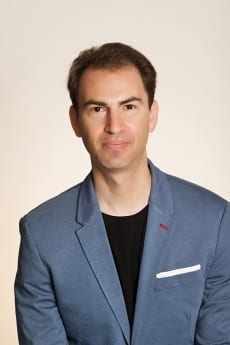
Professor Gregg Brazinsky, affiliated faculty member at the Sigur Center for Asian Studies, was quoted in the Wall Street Journal article, “U.S. Envoy Voices Optimism Ahead of North Korea Nuclear Summit” by Andrew Jeong and Timothy Martin.
Sigur Center for Asian Studies
At the Elliott School of International Affairs
Sigur Center affiliated faculty remain quite active outside of the classroom, with many engaging in public debates, publishing articles, and being quoted or interviewed by a wide variety of news and media outlets.
Please note that any views expressed in highlighted articles, interviews, or such posts are solely those of the author and not of the Sigur Center. In the spirit of open academic debate and dialogue, the Sigur Center shares and highlights the works of its affiliated faculty.
If you find any noteworthy accomplishments from our affiliated faculty, send them to gsigur@gwu.edu to be featured on our website!
Please find our 2009-2018 news archive here: https://www2.gwu.edu/~sigur/news/in-the-news.htm

Professor Gregg Brazinsky, affiliated faculty member at the Sigur Center for Asian Studies, was quoted in the Wall Street Journal article, “U.S. Envoy Voices Optimism Ahead of North Korea Nuclear Summit” by Andrew Jeong and Timothy Martin.
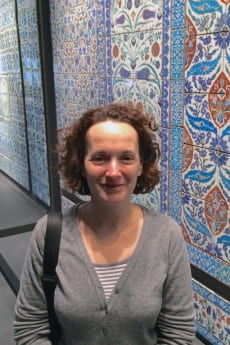
Professor Mika Natif, Assistant Professor of Art History, was a recipient of a Sigur Center travel grant that helped her travel to India for a new research project. Read below for a description of her trip!
Over the break I went to India in order to start my new research project, focusing on Mughal female patrons, artists and portraiture. During this trip I visited palaces, museums, special libraries, and private collections in Delhi, Jaipur, Ajmer, Jodhpur and Rampur. I was mostly looking for images of women related to the Mughal courts during the times of Emperors Akbar, Jahangir and Shah Jahan. I also wanted to see the places from which some of these women, wives, concubines and court ladies came. And I was also searching for any visual and textual materials I could find that were related to this topic. In some places I got luckier than in others.
One of these amazing places was the Raza Library in Rampur, Uttar Pradesh. This incredible collection of illustrated manuscripts and albums grew out of the personal library of the nawab (governor) of Rampur, Faizullah Khan, in end of the 18th century. The current beautiful building was constructed about one hundred years later to house the ever-growing library of rare specimens in Persian, Urdu, Arabic, Sanskrit, and other languages. Working at the Raza library, I was looking at portraits of Mughal women, especially of Nur Jahan, as well as illustrated historical texts, such as Rashid al-Din’s World History (Jami al-Tawarikh). I would like to thank Dr. Abu Sad Islahi and Faisal Khan for their generosity and help throughout my visit.
In my last days in New Delhi, I gave a lecture at the Jawaharlal Nehru University (JNU). Prof. Kavita Singh invited me to celebrate the publication of my new book “Mughal Occidentalism” and I was delighted to do so in India, not too far from the Mughal palace itself. The lecture was a wonderful opportunity to see old and new colleagues, and meet with graduate students to discuss their work.
Climbing up the stairs to visit the Rajput palace in Amer, Rajasthan
Entrance gate to the first courtyard at Amer fort. The floral wall paintings depicted on the gate are linked to Mughal art.
the Main road leading to the Chishti dargah (shrine) at Ajmer, Rajasthan. Several of the royal Mughal women were followers of Chishti sufi shaykhs, and like Akbar and Jahangir, they also went on pilgrimage to visit this shrine.
Looking at an illustrated manuscript of the World History (Jami al-Tawarikh) by Rashid al-Din.
Persian manuscript with Mughal seals and Emperor Shah Jahan’s handwriting on the flyleaf. Raza Library, Rampur.
Presenting my book to Dr. Abu Sad Islahi, as a gift to the Raza Library collection.
Prof. Kavita Singh introducing “Mughal Occidentalism” before my lecture at JNU, New Delhi.

Benjamin Hopkins, Director of the Sigur Center for Asian Studies and Associate Professor of History & International Affairs at George Washington University, was interviewed by Voice of America regarding US withdrawal of troops in Afghanistan and US position shift towards the Taliban.
Listen to the full interview here.

Professor Jonathan Chaves, affiliated faculty member at the Sigur Center for Asian Studies, was interviewed by GWU alumnus Paulo Salgueiro on the Paulo Salgueiro Show, WARA AM out of Attleboro, Massachusetts.
Listen to the full interview here.
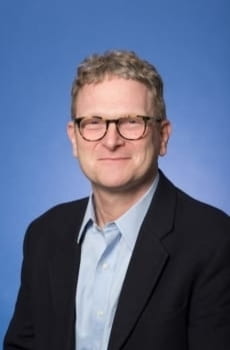
Professor Sean Roberts, affiliated faculty member at the Sigur Center for Asian Studies, was quoted in the South China Morning Post article, “US lawmakers nominate jailed Uygur Ilham Tohti for Nobel Peace Prize, seeking global pressure on China” by Jodi Xu Klein. The article takes a look at U.S. lawmakers nominating Uygur academic Ilham Tohti for the 2019 Novel Peace Prize.

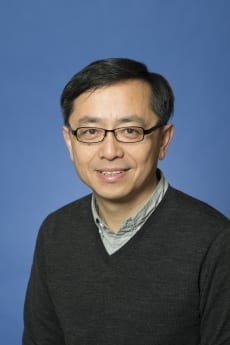
Professors David Shambaugh and Daqing Yang, faculty at the Sigur Center for Asian Studies were both quoted in the recent GW Hatchet article, “Amid political pressure, Confucius Institute will stay open” by Meredith Roaten.
The article takes a deep look into the role of Confucius Institutes in the US, as well as the one on our campus at GW.
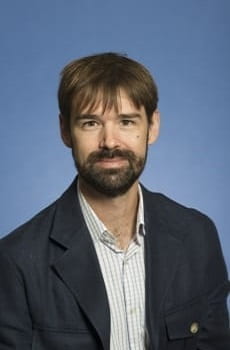
The Sigur Center for Asian Studies and the Institute for Korean Studies, both housed in the Elliott School of International Affairs, have been awarded $1.8 million to establish an East Asia National Resource Center at the George Washington University.
The new center’s aim will be to address a national need for greater knowledge and expertise on East Asia through expanded language instruction, area studies educational programs, outreach and teacher training.

Benjamin Hopkins, Director of the Sigur Center for Asian Studies and Associate Professor of History & International Affairs at George Washington University, was quoted in the USA Today article “US-Taliban deal may be close, but future of Afghanistan remains bleak.” In it, he discusses President Trump’s actions regarding the withdrawal of troops from Afghanistan. Read the full article here!

Gregg Brazinsky, Professor of History & International Affairs at George Washington University, was quoted in the Wall Street Journal article “US-North Korea Talks Are Moving Decisively to the Diplomatic Phase.”
The views expressed are solely those of the speaker and not of the Sigur Center. In the spirit of open academic debate and dialogue, the Sigur Center shares and highlights the works of its affiliated faculty. However, the views expressed within articles and highlights are those of the faculty member and not of the Sigur Center.

David Shambaugh, Gaston Sigur Professor of Asian Studies, Political Science & International Affairs at George Washington University, gave a speech at the Carter Center and Emory University Symposium on “The United States & China at 40: Seeking a New Framework to Manage Bilateral Relations.” In it, he discusses what the 40th anniversary of U.S.-China Relations means for him personally, as well as how the two countries can forge a constructive path forward during a time of increased divisiveness. The symposium in Atlanta, Georgia was held from January 16 – 19, 2019. Read the full speech here!